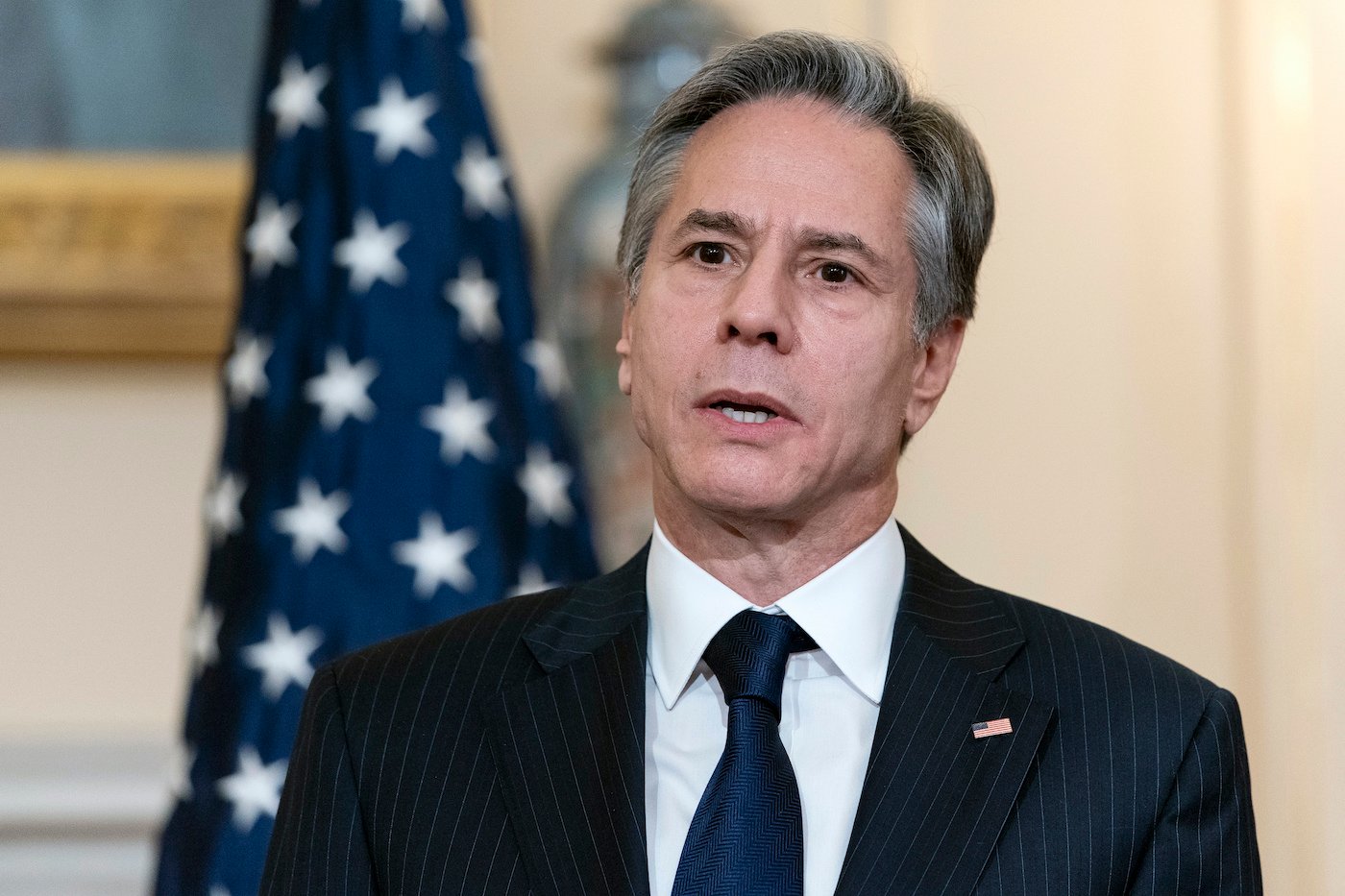WASHINGTON (CN) — The House Foreign Affairs Committee won’t accept anything less than full compliance from the State Department on its subpoena for documents related to the U.S. withdrawal from Afghanistan, the panel’s Republican leader told the secretary of state Wednesday.
Texas Congressman Michael McCaul, who chairs the panel, issued the March 28 subpoena to demand what is known as a dissent channel, or confidential cable, between Washington and the U.S. Embassy in Kabul.
Dissent channels provide State Department staff with an avenue to disagree with Washington’s foreign policy decisions without fear of retribution. While McCaul has framed the dissent channel at issue as a vital piece of the puzzle for understanding the U.S. military’s 2021 Afghanistan exit, the agency has been reluctant to make such a cable public. Earlier this month, Secretary of State Antony Blinken told the foreign affairs panel that it could dissuade future use of the dissent channel if department employees who used it are unmasked.
The agency has also argued that there is precedent for keeping dissent channels private, pointing to then-Secretary of State Henry Kissinger’s 1975 refusal to provide a similar document to Congress related to an attempted military coup in Cyprus. Instead, the agency at the time opted to give Congress a dossier containing excerpts from the cable.
Despite that, McCaul implored Blinken in a Wednesday letter to fully comply with the subpoena.
“The Dissent Channel cable and response are critical and material to the Committee’s investigation,” McCaul wrote. “The Dissent Channel cable is key contemporaneous evidence, providing concerns from U.S. officials on the ground in Afghanistan.”
The congressman penned his letter in response to a March 31 correspondence from the State Department in which the agency offered to privately brief the foreign affairs panel on the contents of the Kabul dissent channel and the State Department’s response.
Since that offer does not include supply of the actual dissent channel, McCaul responded that the committee is willing to participate in such a briefing “in good faith,” but that it would not satisfy the subpoena.
The lawmaker suggested that the State Department also allow a private review of the cable itself, with the names of agency staff redacted. This option would both address department concerns about confidentiality and leave the door open for the committee to request an unredacted version of the dissent channel in the future, McCaul reasoned.
As for the State Department’s invocation of the 1975 Cyprus dissent channel, the panel chair argued that the agency had misrepresented the parts of the cable it provided to Congress to shield it from scrutiny.
“The Committee has an obligation to investigate the withdrawal and determine what actions, including potential legislation, are necessary to help prevent a similar catastrophe from occurring again in the future,” the congressman wrote.
The State Department has until 5 p.m. April 19 to respond to McCaul’s subpoena, a deadline extended from Monday. The congressman said he would be willing to tack on an extra hour if the agency agreed to hold a briefing on the dissent channel.
For McCaul, such a briefing is a compromise.
The lawmaker told Courthouse News on the steps of the Capitol March 28 that the State Department’s offer to provide a briefing on the dissent channel was unacceptable, arguing that the agency would provide a sanitized or filtered perspective on the cable.
“Secretary Blinken and I have a very cordial relationship,” McCaul said. “We’ll continue to see if we can get there, but I think right now we have to go with the subpoena.”
The congressman added that he would be willing to enforce the subpoena if the State Department did not comply. He posited that there would be bipartisan support for such a move, citing 2021 attempts by then-House Foreign Affairs Committee chair Gregory Meeks, a New York Democrat, to secure the dissent cable.
According to federal law, anyone who fails to comply with a congressional subpoena can be held in contempt of Congress, a process that could result in a criminal investigation carrying fines or jail time. Only one sitting Cabinet official has ever been held in contempt of Congress: The House in 2012 took such action against then-Attorney General Eric Holder.
Meanwhile, the State Department Thursday announced that it had sent a December 2021 after-action report from Ambassador to Afghanistan Dan Smith to relevant congressional committees. Blinken told lawmakers last month that the report would soon be sent along.
"The State Department’s greatest asset is its people, including an extraordinary group of dedicated and talented professionals who worked tirelessly on the ground in Kabul, in Washington, and at other sites domestically and abroad to evacuate and assist as many people as possible during that period," the secretary of state said in a statement. "Their efforts, and the efforts of all from our Department who served in Afghanistan over two decades as well our Afghan partners who served alongside them, deserve our highest praise and gratitude, and we continue to honor them through our work going forward."
Since Republicans wrested control of Congress in January, McCaul has been pushing the State Department to give up details related to the 2021 Afghanistan withdrawal, a move that the congressman and many of his GOP colleagues have derided as a military and diplomatic failure that resulted in the unnecessary deaths of U.S. servicemembers and Afghan citizens.
Updated 04/06/2023 4:19 p.m. Eastern time.
Subscribe to Closing Arguments
Sign up for new weekly newsletter Closing Arguments to get the latest about ongoing trials, major litigation and hot cases and rulings in courthouses around the U.S. and the world.









